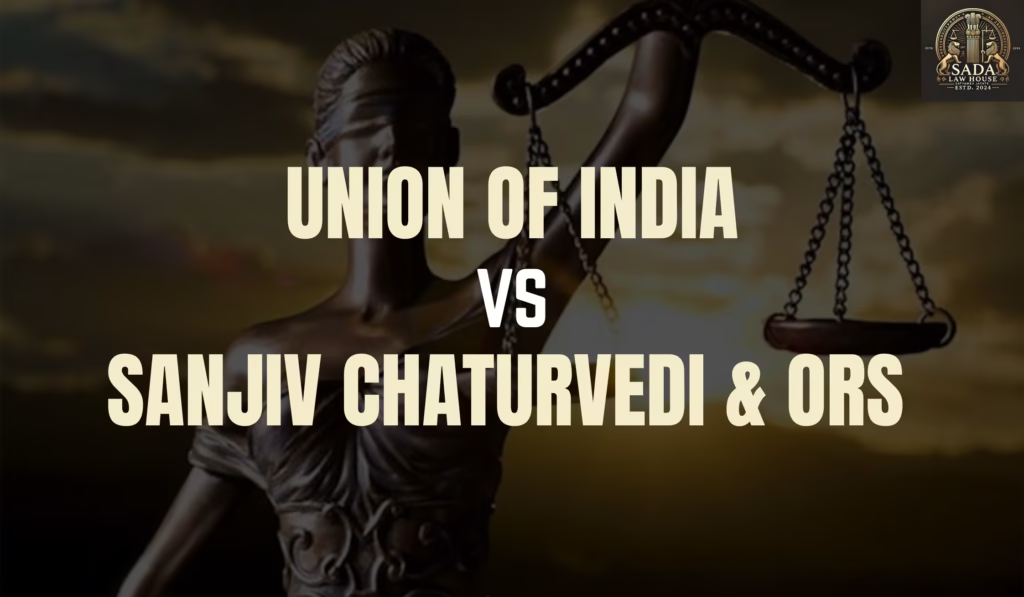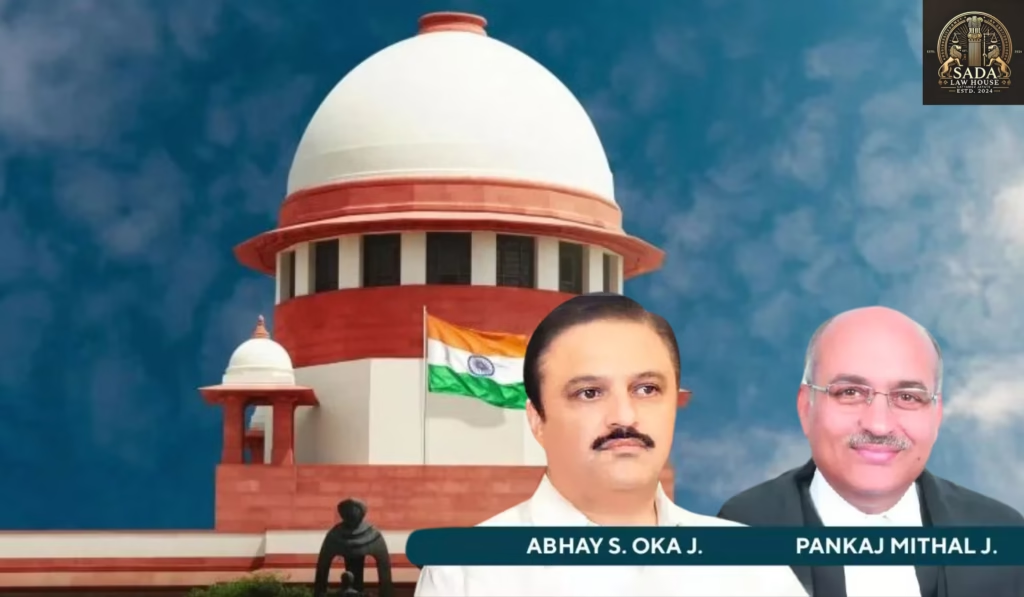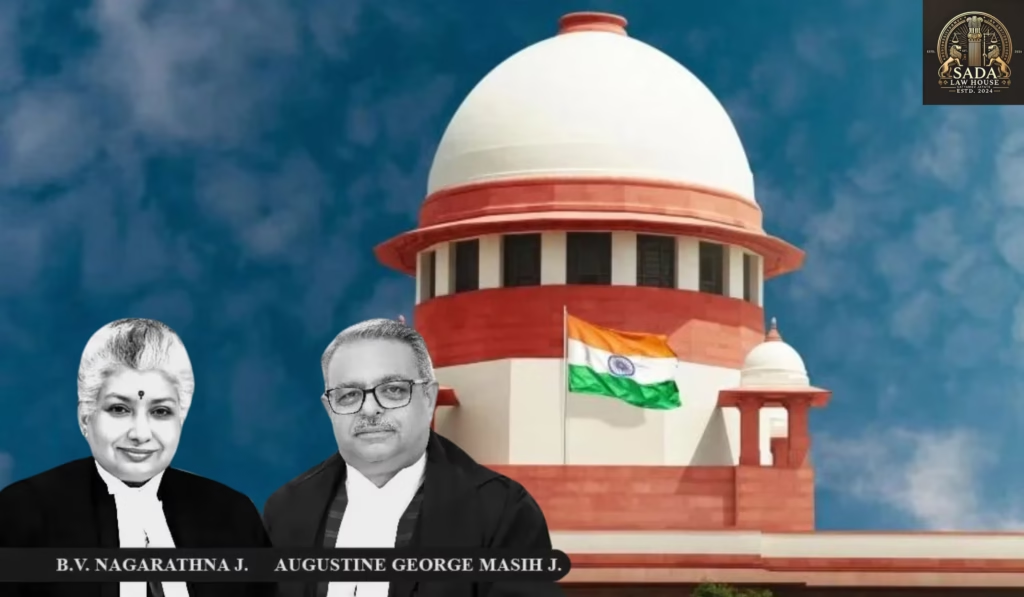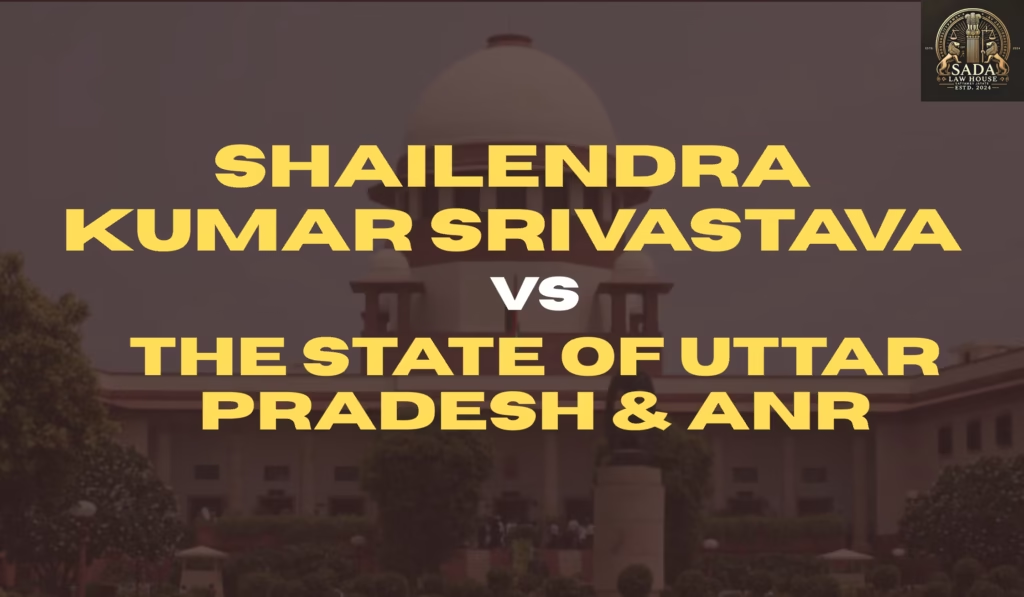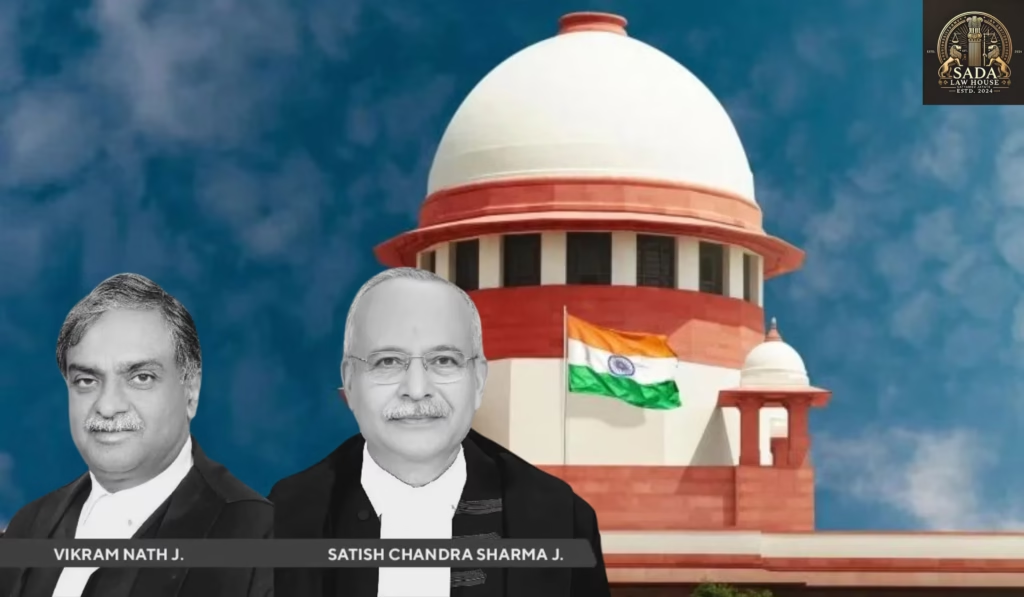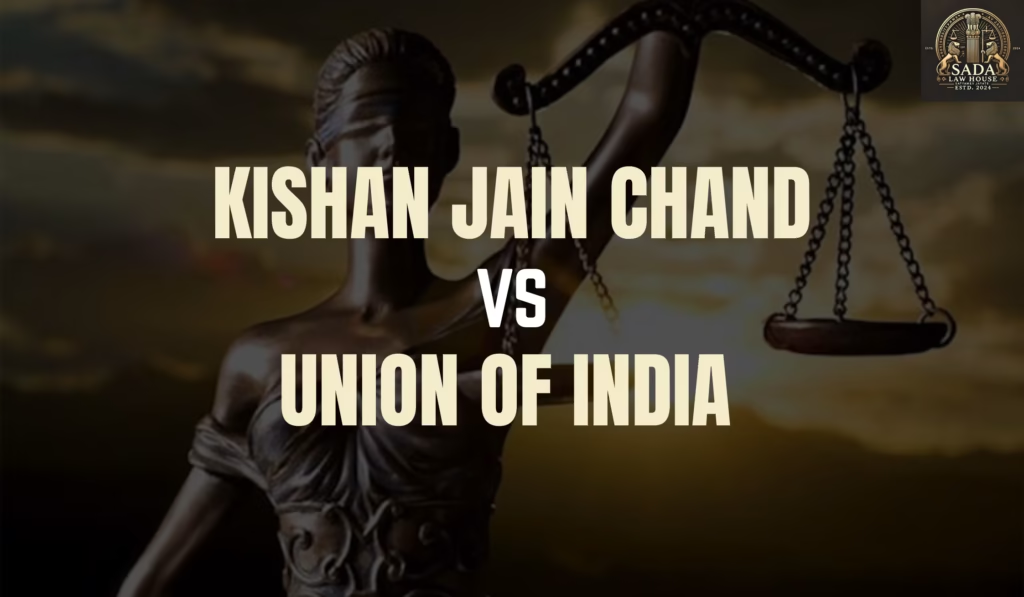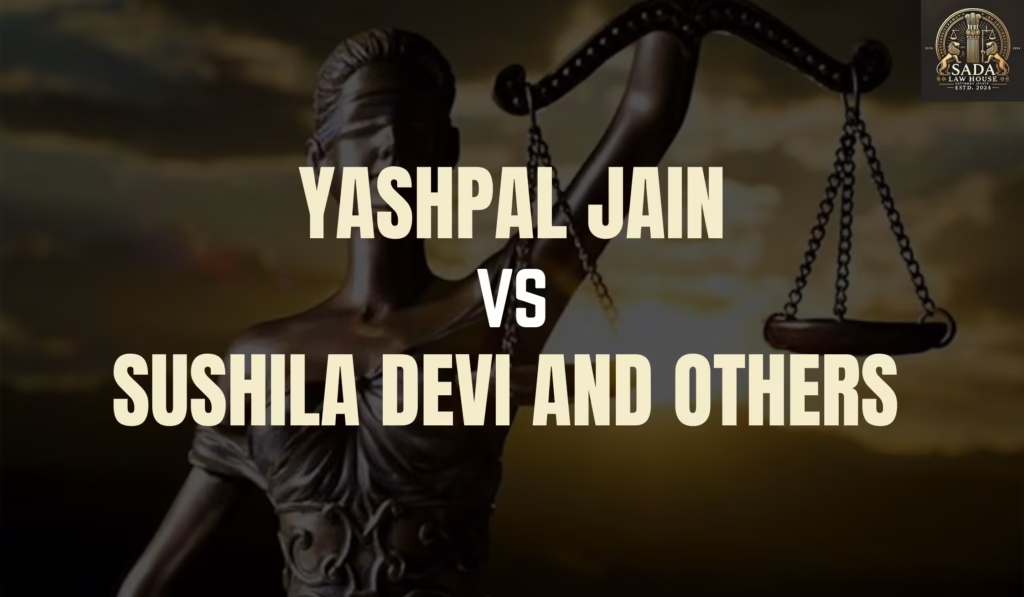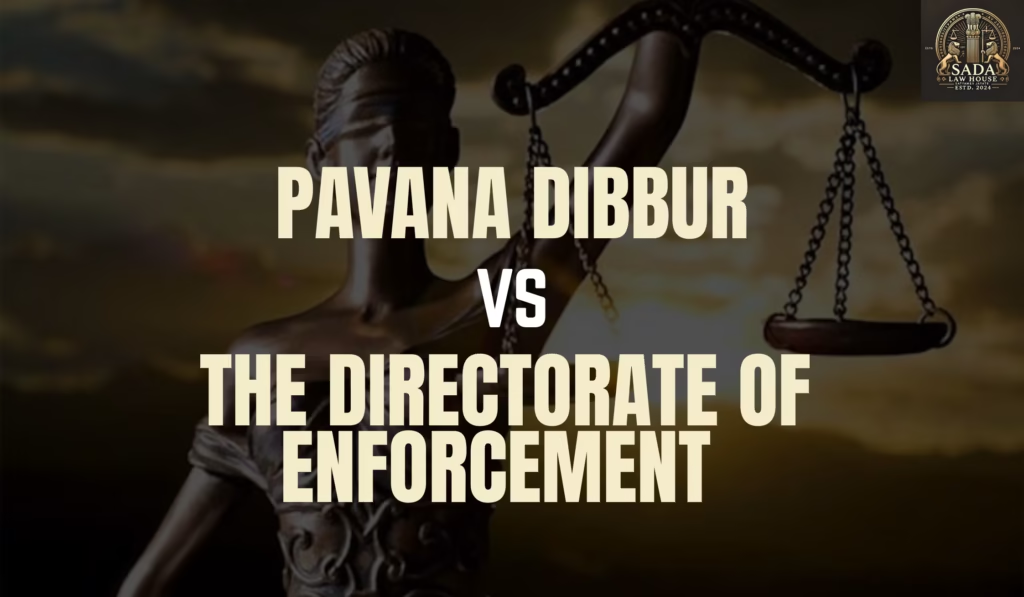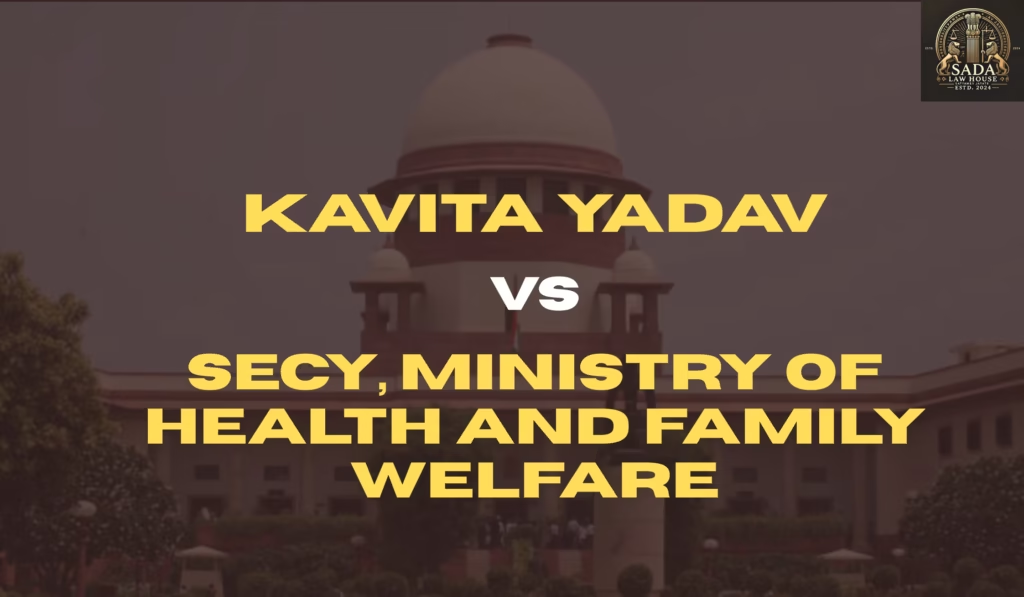Can High Courts Review CAT Orders from Outside Their Jurisdiction? Supreme Court Seeks Clarity in Sanjiv Chaturvedi Case
Trending Today Can High Courts Review CAT Orders from Outside Their Jurisdiction? Supreme Court Seeks Clarity in Sanjiv Chaturvedi Case Supreme Court Grants Interim Relief to Journalists in MP FIR Case, Directs Them to Seek High Court Protection Supreme Court Stays Madras HC Order Stopping NHAI Toll Collection on Madurai-Tuticorin Highway Supreme Court Refuses Urgent Hearing of Tamil Nadu’s Lawsuit Against Centre Over Rs 2291 Crore Education Funds Dispute Kerala High Court Upholds Widow’s Right to Marital Home Under Domestic Violence Act Bombay High Court Judge Cites Long Work Hours and Backlog for Delayed Judgment Upload in Landmark Property Dispute Case Supreme Court Landmark Ruling: Permanent Alimony and Home Ownership Rights for Divorced Women Supreme Court Landmark Alimony Verdict Redefines Dignity and Rights of Divorced Women in India Supreme Court Empowers Victims: Right to Appeal Acquittals Confirmed The Fodder Scam Redux: Supreme Court Revives Corruption Trials in Bihar Ahead of Elections Can High Courts Review CAT Orders from Outside Their Jurisdiction? Supreme Court Seeks Clarity in Sanjiv Chaturvedi Case REHA BHARGAV 11 June 2025 The Supreme Court’s 2023 judgment in Union of India v. Sanjiv Chaturvedi raises key questions on High Court jurisdiction over CAT orders. Learn how this case impacts service law, administrative justice, and whistleblower protection in India. Landmark Case: Union of India v. Sanjiv Chaturvedi (2023) On March 3, 2023, the Supreme Court of India delivered a significant judgment in Union of India v. Sanjiv Chaturvedi & Ors., addressing a critical legal question:Can a High Court entertain a writ petition against an order of the Central Administrative Tribunal (CAT) when the tribunal is located outside the court’s territorial jurisdiction? The Supreme Court refrained from issuing a conclusive verdict and instead referred the matter to a larger constitutional bench, recognizing its wide-reaching implications on service law, jurisdictional clarity, and judicial review in administrative matters. Case Background: Who Is Sanjiv Chaturvedi? Sanjiv Chaturvedi is a 2002-batch Indian Forest Service (IFS) officer, well-known for his whistleblowing role in exposing corruption during his tenure. His efforts earned public attention, but also resulted in transfers and disciplinary actions, sparking a complex legal battle over inter-cadre deputation from Haryana to Uttarakhand. While the Uttarakhand Government supported his transfer, the Government of India opposed it, leading Chaturvedi to file a petition before the Central Administrative Tribunal. Legal Issue: Territorial Jurisdiction of High Courts Over CAT Orders The primary legal question was: Does a High Court have jurisdiction to review an order passed by the CAT Principal Bench in New Delhi if the cause of action occurred in another state? This issue arose after the Uttarakhand High Court overturned the CAT’s decision to transfer Chaturvedi’s original application to Delhi. The Union Government challenged this in the Supreme Court, arguing that only the Delhi High Court had jurisdiction over CAT orders issued by its Principal Bench. Union of India’s Argument The Union of India asserted that: Only the Delhi High Court had territorial jurisdiction since the CAT Principal Bench passed the order in New Delhi. Chaturvedi’s posting in Uttarakhand was irrelevant to jurisdiction. Allowing multiple High Courts to review CAT orders could lead to conflicting rulings and forum shopping. Sanjiv Chaturvedi’s Argument Chaturvedi countered that: The cause of action arose entirely in Uttarakhand, including the administrative decisions he challenged. Under Article 226 of the Indian Constitution, any High Court can exercise jurisdiction if any part of the cause of action arises within its territory. Forcing all such reviews to Delhi would undermine access to justice and overburden the Delhi High Court. Supreme Court’s Judgment: Referred to Larger Bench Rather than resolving the jurisdictional issue, the Supreme Court—led by Justice M.R. Shah and Justice B.V. Nagarathna—recognized its constitutional importance and referred it to a larger bench for an authoritative interpretation. The Court acknowledged that service-related cases often involve officers posted across the country, and inconsistency in jurisdictional rules would disrupt the uniformity of administrative justice. Key Legal Implications This case touches on broader themes critical to Indian jurisprudence: Judicial review of tribunal decisions under Article 226 Inter-cadre deputation rules for IFS and other All India Services officers Whistleblower protection in the Indian civil service Territorial jurisdiction and High Court powers in administrative law Conclusion: Awaiting Clarity on CAT Jurisdiction The Supreme Court’s approach in Union of India v. Sanjiv Chaturvedi underscores the need for a uniform legal standard on the territorial jurisdiction of High Courts over CAT orders. Until the larger constitutional bench delivers a final ruling, civil servants and legal professionals must navigate this gray area with caution. This case not only affects Sanjiv Chaturvedi but sets the stage for far-reaching implications across service law, judicial review, and the protection of honest public servants in India. Leave a Reply Cancel Reply Logged in as Sada Law. Edit your profile. Log out? Required fields are marked * Message* Case Laws Can High Courts Review CAT Orders from Outside Their Jurisdiction? Supreme Court Seeks Clarity in Sanjiv Chaturvedi Case Can High Courts Review CAT Orders from Outside Their Jurisdiction? Supreme Court Seeks Clarity in Sanjiv Chaturvedi Case Sada Law • June 11, 2025 • Case law • No Comments Supreme Court Judgment on Arbitration Appeals: Limits on Remand and Emphasis on Efficiency in Bombay Slum Redevelopment Case (2024) Supreme Court Judgment on Arbitration Appeals: Limits on Remand and Emphasis on Efficiency in Bombay Slum Redevelopment Case (2024) Sada Law • June 9, 2025 • Case law • No Comments Supreme Court Affirms Divorced Muslim Women Can Claim Maintenance Under Section 125 CrPC Despite 1986 Act Supreme Court Affirms Divorced Muslim Women Can Claim Maintenance Under Section 125 CrPC Despite 1986 Act Sada Law • June 9, 2025 • Case law • No Comments 1 2 3 … 5 Next »

